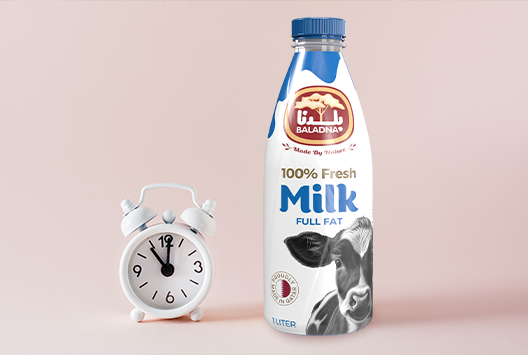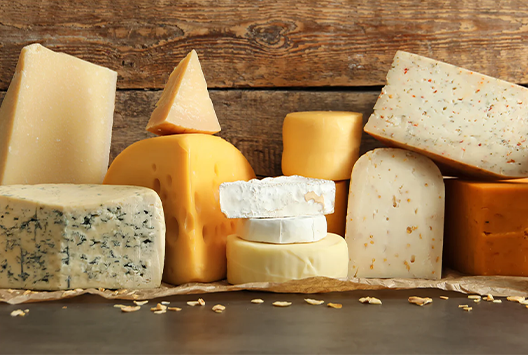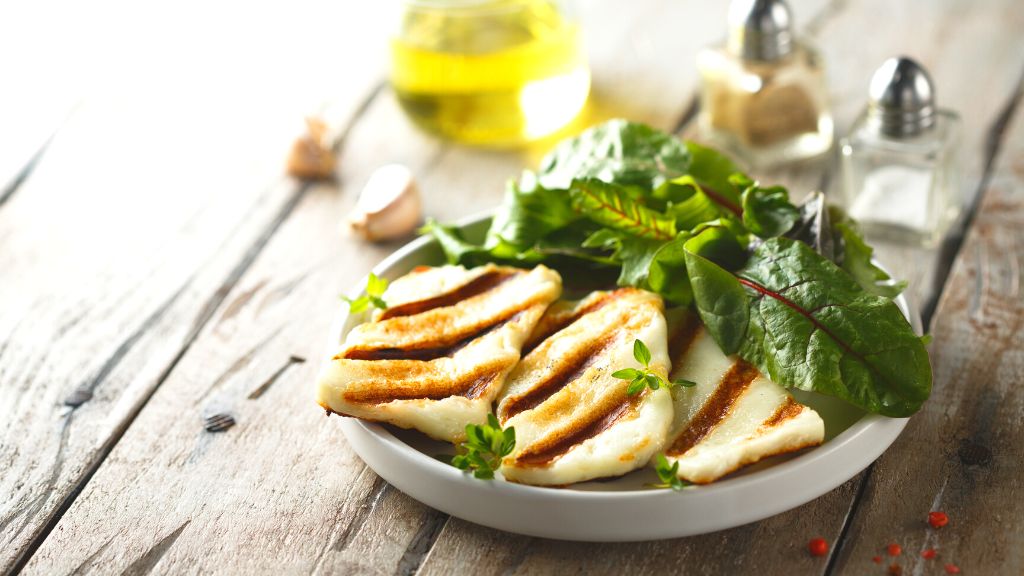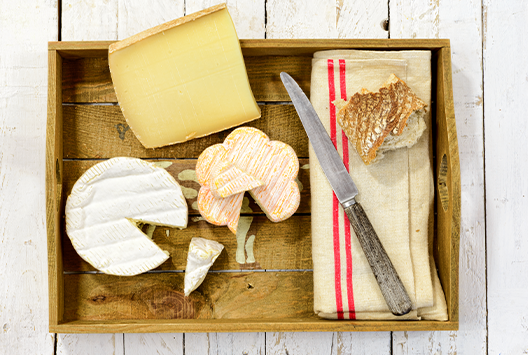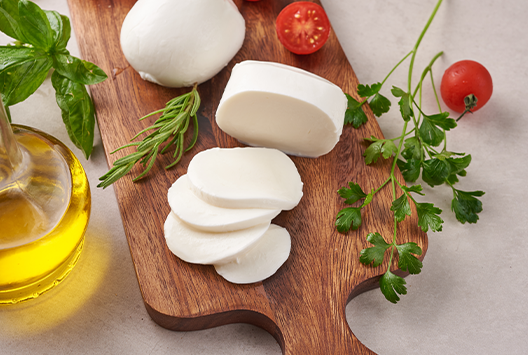
Mozzarella Magic: Why You Should Consider Eating More of This Cheese
Similar
Who doesn't love mozzarella cheese? Its melt-in-your-mouth texture and subtle flavor make it a crowd favorite. It is great in pizzas, salads, and sandwiches and a must-have in dishes like lasagna and quiche.
The best part is that mozzarella is not just delicious, but also offers a wide range of health benefits. You read that right and we’re here to list some of them for you:
It’s a great source of protein
Are you looking for ways to increase your daily protein intake? If so, you should definitely consider adding some mozzarella cheese to your diet. Mozzarella cheese is a type of cheese that is often made from cow’s milk or a combination of cow’s milk and goat’s milk. That makes it a great source of protein, which we all know is important for muscle growth and the proper functioning of the immune system.
A single serving of mozzarella cheese can provide up to 12 grams of protein, so make sure to buy some mozzarella cheese on your next grocery shopping spree!
It’s good for bone health
Mozzarella cheese is a great source of calcium, which means it can help with the development of strong and healthy bones. Additionally, mozzarella cheese is a good source of phosphorus, which also plays an important role in bone health. Phosphorus helps to absorb and use calcium and makes up a large portion of the bone itself. Eating mozzarella cheese can help maintain a healthy calcium-phosphorus balance which is necessary for strong and healthy bones.
Mozzarella cheese is also a great source of vitamin D, which helps the body absorb and use calcium and also helps maintain healthy levels of calcium in the blood.
It’s rich in vitamin B2
Mozzarella cheese is an excellent source of riboflavin, also known as vitamin B2, which is an essential nutrient that helps break down carbohydrates, proteins, and fats and helps the body produce energy from the food we eat. Riboflavin is also important for the production of red blood cells, which help carry oxygen throughout the body. In addition, riboflavin helps to convert vitamin B6 and folate into forms that can be used by the body.
Eating mozzarella cheese is an easy way to increase your riboflavin intake, as just one ounce of mozzarella cheese contains roughly 0.2 milligrams of riboflavin, which is about 15 percent of the recommended daily intake for adults.
It’s filled with biotin
Mozzarella cheese is a great source of biotin, which plays an important role in metabolism and aids in the breakdown of certain fats and proteins. It also helps to maintain healthy skin and hair while also aiding in the production of energy. Eating more mozzarella cheese is an easy way to increase your biotin intake and reap the benefits of this essential nutrient.
Say cheese!
Mozzarella cheese is an excellent food choice due to its high nutritional value and versatility. It is a great source of protein, calcium, phosphorus, riboflavin, and biotin, all of which play a crucial role in maintaining a healthy body. Its mild flavor and versatility make it a great addition to any meal. Eating more mozzarella cheese is an easy and delicious way to enjoy the many health benefits it has to offer.
Maintain a healthy body without sacrificing taste with the help of Baladna mozzarella cheese. Produced from fresh farm milk, we offer an array of authentic Arabic cheeses, including Akawi, Halloumi, Majdoula, Moshalal, and Nabulsi. Order now!
